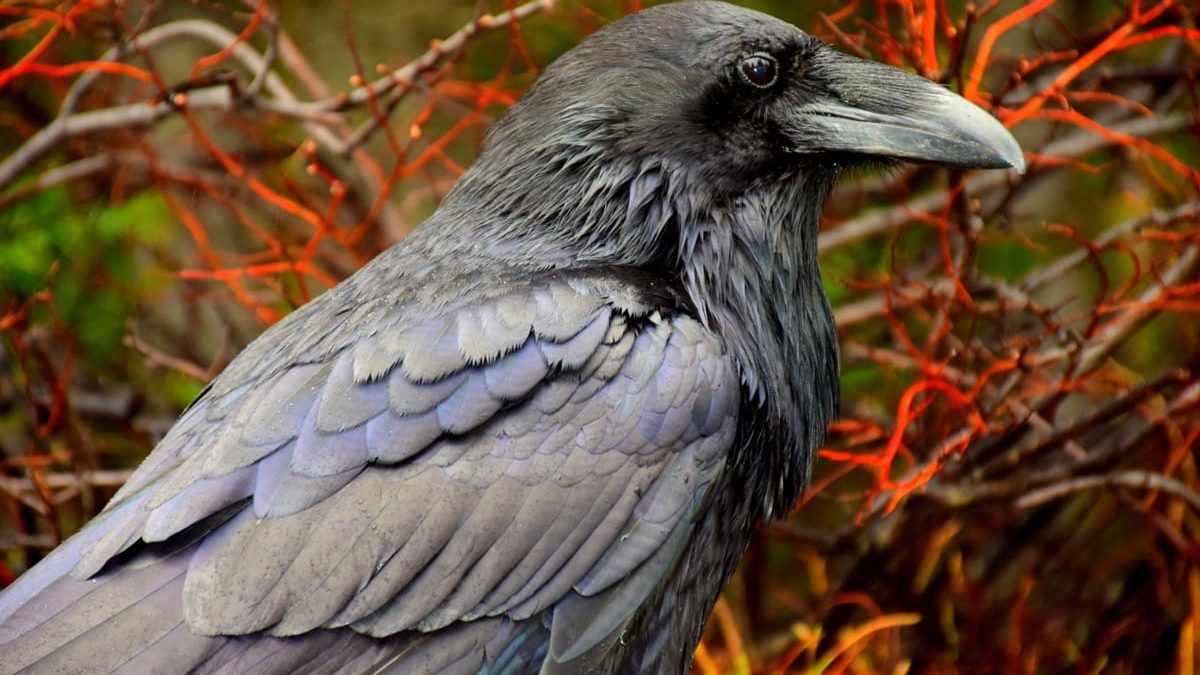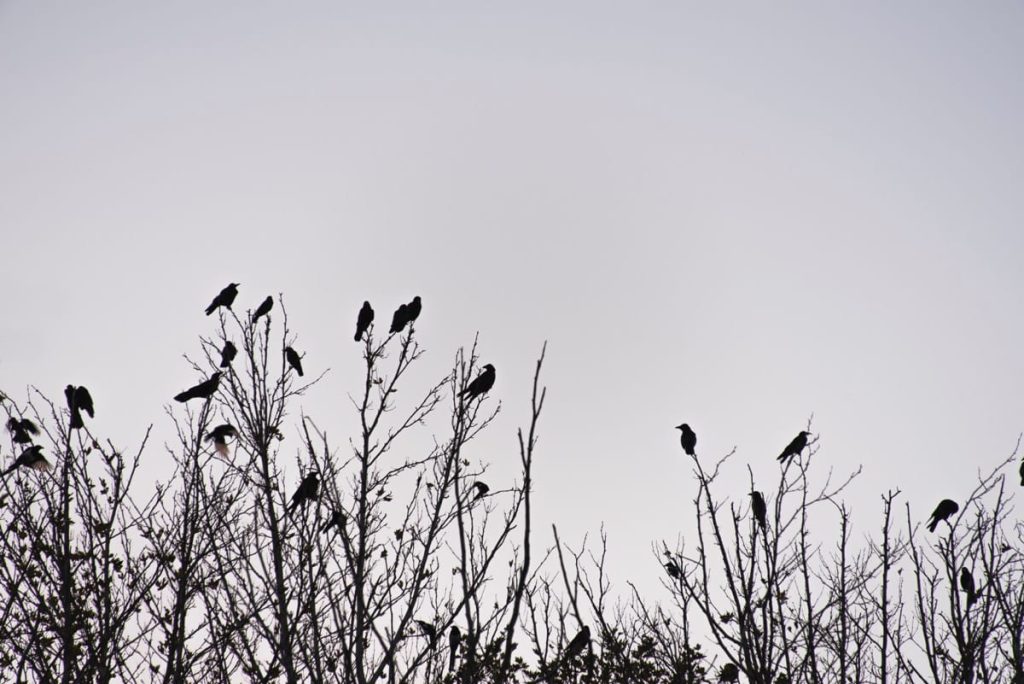
Where Do Crows Sleep?
Crows, with their intelligence and mischievous charm, have captivated humans for centuries. But one question often leaves us scratching our heads: where do crows sleep? Their nightly routines, surprisingly, differ with the seasons and offer fascinating insights into their social lives.
Cozy Nests, Bustling Roosts: Where Do Crows Sleep At Night?
Crows don’t dive into individual beds under feathery blankets. Instead, they favor two main sleeping quarters:
- Nests: During breeding season, crows build sturdy stick nests high in trees or on other elevated structures. These cozy sanctuaries house both parents and their growing chicks. Mama crow even lines the nest with soft materials for extra comfort.
- Roosts: Outside of breeding season, crows gather in large groups called “murders” at communal roosts. These can be impressive spectacles, with thousands of birds settling in for the night. Roosts offer warmth, safety in numbers, and a chance to share information about food sources.
Crow Bedrooms: Winter vs. Summer Slumber
So, where do crows sleep in winter when nests are empty? Surprisingly, they stick to roosts year-round. Winter roosts tend to be larger and closer to reliable food sources, offering extra protection from the harsh cold. Some roosts even boast tens of thousands of crows!
Summer brings milder temperatures, and some crows may opt for smaller, dispersed roosts closer to their breeding grounds. This allows them to be more vigilant in protecting their nests and chicks.
Beyond Nests and Roosts: The Secret Side of Crow Slumber
While nests and roosts are the main sleeping spots, crows are adaptable creatures. They might occasionally rest in:
- Evergreens: Dense foliage provides shelter and protection from predators.
- Abandoned buildings: These offer warmth and shelter, especially during harsh weather.
- Chimney tops: Their narrow, enclosed spaces might offer a cozy haven.
Crows in Slumberland: Demystifying Their Sleeping Habits
Crows aren’t light sleepers. They take turns napping while keeping one eye open for predators. Their keen eyesight and sharp hearing make them alert sentinels throughout the night. Interestingly, young crows tend to sleep closer to their parents for warmth and protection.
As dawn approaches, the roost comes alive with a flurry of activity. Crows stretch their wings, share food discoveries, and engage in lively chatter before dispersing for the day’s adventures.

More Than Just a Snooze: Why Crow Roosts Matter
Crow roosts aren’t just sleeping quarters; they play a crucial role in their social lives and survival:
- Safety in Numbers: Roosting together provides protection from predators. The sheer number of crows discourages owls and other hunters.
- Information Exchange: The cacophony of calls at roosts isn’t just noise. Crows share information about food sources, potential threats, and safe travel routes.
- Mating Ground: Roosts can be bustling social hubs where crows find mates and strengthen social bonds.
Protecting Crow Slumber: Tips for Living Alongside These Clever Birds
Crows are intelligent and adaptable, but their roosting can sometimes cause inconveniences. To peacefully coexist with these fascinating creatures, consider these tips:
- Maintain green spaces: Trees and other natural areas provide crows with nesting and roosting options, reducing their reliance on buildings.
- Use noise deterrents: If crows roost near your home, gentle, intermittent noises like wind chimes or water sprinklers can discourage them from settling.
- Respect their roosts: Avoid disturbing roosts at dusk or dawn, as this can stress the birds and potentially endanger them.
Learning about where crows sleep offers a glimpse into their remarkable social intelligence and adaptability. By understanding their nighttime routines, we can appreciate these clever birds even more and foster a harmonious coexistence with them in our shared environment.



